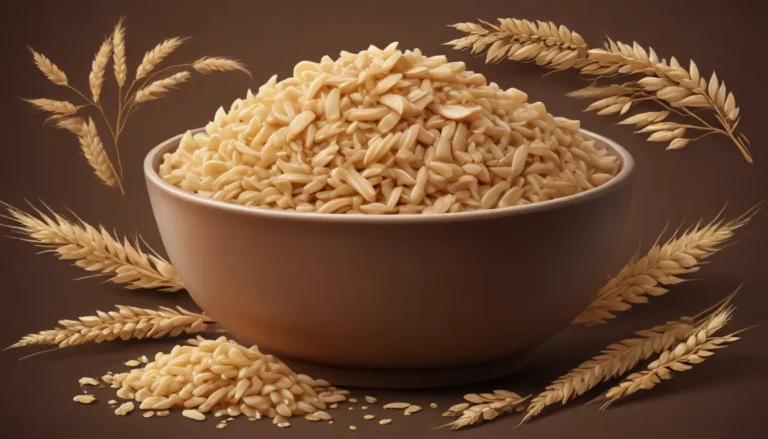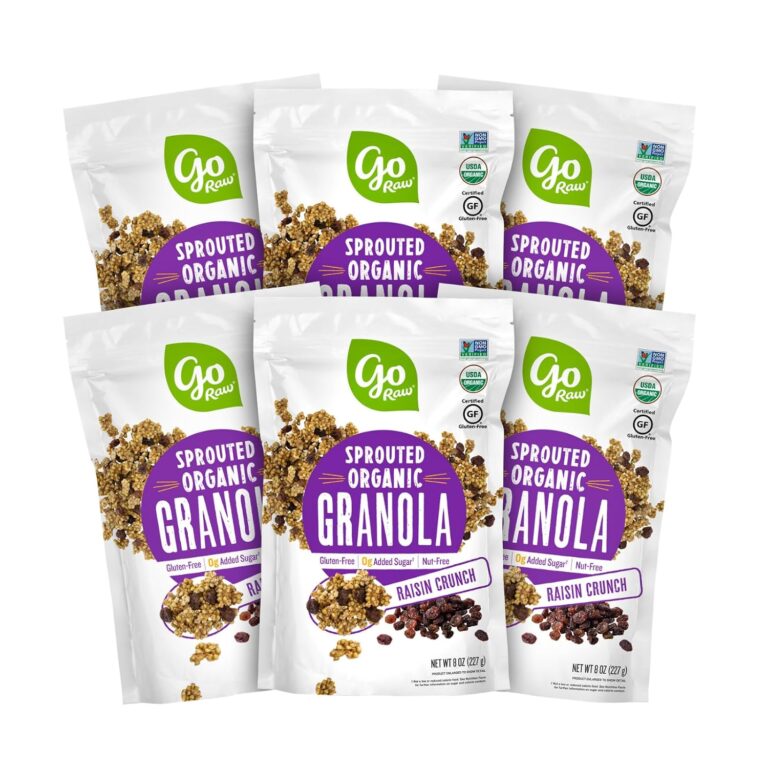The pictures in our articles might not always show exactly what the text is talking about. We use these images to make the article more interesting and eye-catching. They are there to add to the text, but not to replace it or show every detail.
Do you ever imagine adding mealworms to your diet? These beetle larvae are more than just tiny creatures; they are a hidden treasure trove of essential nutrients that can benefit your health. In this article, we will delve into the world of mealworms and unveil 20 fascinating nutrition facts that make them a valuable addition to your meals. From their protein-packed goodness to their eco-friendly benefits, mealworms are a versatile and sustainable food option that can enhance your overall health. So, if you're curious about the nutritional value of mealworms and how they can elevate your well-being, keep reading!
Unveiling the Nutritional Goodness of Mealworms
1. Protein Powerhouse
Mealworms are an excellent source of protein, containing approximately 20-25 grams per 100 grams. This protein richness makes them a fantastic addition to any high-protein diet.
2. Essential Amino Acids
These tiny critters contain all nine essential amino acids that your body requires for building and repairing tissues. These amino acids play a crucial role in supporting overall health.
3. Low in Fat
Unlike many other protein sources, mealworms are relatively low in fat, with only around 5-7 grams per 100 grams. This makes them a healthier alternative to fatty meats.
4. Fiber-Rich
Surprisingly, mealworms are also high in dietary fiber, with approximately 6-7 grams per 100 grams. Fiber is essential for maintaining a healthy digestive system and regulating blood sugar levels.
5. Vitamin and Mineral Bounty
Mealworms are packed with vitamins and minerals such as vitamin B12, vitamin D, iron, zinc, and magnesium. Incorporating mealworms into your diet can help boost your nutrient intake.
6. Beneficial Fatty Acids
They also provide a good amount of omega-6 and omega-3 fatty acids, essential for brain function, heart health, and reducing inflammation in the body.
7. Eco-Friendly Choice
Due to their minimal space, water, and feed requirements compared to traditional livestock, mealworms have a significantly smaller ecological footprint. They are considered a more sustainable protein source.
8. Gluten-Free Alternative
For individuals with gluten intolerance or celiac disease, mealworms offer a safe and gluten-free alternative to grains and other protein sources.
9. Weight Management Support
With their high protein and fiber content, mealworms can help you feel full, reduce cravings, and support healthy weight management.
10. Versatile in Cooking
Mealworms can be incorporated into various dishes, including stir-fries, salads, protein bars, and pasta. Their mild, nutty flavor makes them a versatile culinary ingredient.
11. Muscle Growth and Repair
Thanks to their high protein content and essential amino acids, mealworms provide the necessary building blocks for muscle growth, repair, and recovery.
12. Long Shelf Life
Dried mealworms have an impressively long shelf life, making them a convenient and nutritious snack that can be stored without refrigeration.
13. Easy to Raise and Farm
Compared to other livestock, mealworms are relatively easy and inexpensive to raise, making them a sustainable solution for protein production.
14. Eco-Friendly Feed Source
Mealworms can serve as a sustainable and cost-effective feed source for animals such as poultry, fish, and reptiles, reducing the need for conventional feedstuffs.
15. Immune System Support
Containing essential vitamins and minerals, mealworms help in maintaining a robust immune system, keeping you healthier and more resistant to illnesses and infections.
16. Energy Boost
With their abundance of protein, healthy fats, and carbohydrates, mealworms provide a sustainable source of energy to fuel your daily activities.
17. Natural Fertilizer
Mealworm waste, known as frass, is a nutrient-rich organic material that can be used as a natural fertilizer for plants, promoting growth and vitality.
18. Low Allergenic Potential
Mealworms have a low allergenic potential, making them a suitable protein source for individuals with food allergies or sensitivities.
19. Brain Health Benefits
The omega-3 fatty acids, like DHA, found in mealworms are crucial for brain development and function, enhancing cognitive performance and reducing the risk of neurodegenerative diseases.
20. Sustainable Food Security Solution
With the global population on the rise, mealworms present a viable solution for addressing food security. They offer a high-quality protein source that can be easily produced on a large scale.
The Nutrient-Rich Conclusion
Mealworms are indeed a nutritional powerhouse that can benefit your overall health and well-being. With their protein, vitamins, minerals, and healthy fats, mealworms offer a sustainable source of nutrition while also benefiting the environment. Whether you choose to consume them directly or incorporate them into recipes, mealworms are a versatile and nutrient-dense food choice. So, go ahead, give mealworms a try, and experience the nutritional rewards they have to offer!
Frequently Asked Questions
Q: Are mealworms safe to eat?
A: Yes, mealworms are safe to eat and are widely consumed around the world. Ensure you source them from reputable suppliers to maintain their quality and safety.
Q: Can vegetarians or vegans consume mealworms?
A: While mealworms are rich in protein, they are derived from animal sources, making them unsuitable for strict vegetarians or vegans. However, personal choices may vary.
Q: How can I incorporate mealworms into my meals?
A: Mealworms can be roasted as a crunchy snack, added to salads, stir-fries, omelettes, or used in baking recipes like muffins or cookies.
Q: Do mealworms pose allergenic risks?
A: Mealworms, like any other food source, can trigger allergies. Exercise caution if you have a history of insect or shellfish allergies.
Q: Are mealworms sustainable for the planet?
A: Yes, mealworms are considered a sustainable food source, requiring less land, water, and feed compared to traditional livestock. Their ability to convert low-quality biomass into high-quality protein makes them eco-friendly.
Bringing you valuable insights and information is our top priority. Every fact on our site is contributed by real users like you, ensuring a diverse wealth of knowledge and credibility. Trust in our dedication to quality and authenticity as you explore and learn with us.






